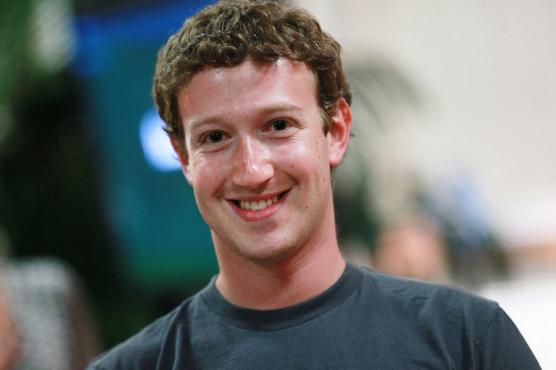Hi Mark,
I just read your Facebook post: “Is Connectivity a Human Right?” and I thought I’d share my perspective (and answer) with you.
First off, you’ve discovered that not every individual in this world has Internet access. Welcome.
I’m a doctoral candidate in sociology up the road from you at UC Berkeley. Yeah, that other Bay Area university. I study social media and social class. In academic-speak, I study how claims of digital democracy clash with structural inequalities. No, I’m not looking for a job at Facebook (even though I am going on the academic job market this fall). In fact, I would never be hired by Facebook, or most any other tech company for that matter, because part of my research involves critically analyzing the Silicon Valley ideology that seeps through your call for corporations to solve inequalities.
Huh? What is Silicon Valley ideology, you ask? Silicon Valley, you know, the place where you headed after high-tailing it out of Cambridge. Yeah, the former fruit farming area of the San Francisco Bay Area that has been the fertile ground for the corporations that control the most popular Internet platforms, like your very own Facebook. In 1995, when you were a mere 11 years old and the Internet browser was just a toddler, two Brits (Barbrook and Cameron) critiqued Wired Magazine for promoting what they called a California Ideology. They argued that California embodies this Internet utopian philosophy of individualism and the free market, at the expense of those from more marginalized classes. I refine this idea it by calling it Silicon Valley Ideology (forthcoming in Digital Politics), not only to specify the corporate headquarters of digital neoliberalism (sorry, I had to throw that term in there), but I also expand their definition to include the social media claim of networked, non-hierarchical, diverse participation in online spaces. This technologically deterministic belief that technology solves problems via free markets, free speech and free labor privileges the individual user. Ok, in plain English, it means that technology + capitalism + individual = egalitarian participation.
So first off, thanks for so neatly summarizing part of this SV ideology in your opening paragraph when you remind us all of what Facebook’s mission is: “to make the world more open and connected.” Ok, that’s not such a bad thing.
Whoa, and then in the third paragraph you provide such a neat explanation of technological determinism that I can’t wait to share it with my undergrads – that technical, social and economic problems will be resolved with Internet access. (FYI, few scholars believe this).
And then you even wear a great sociologist hat when you talk about how our “global knowledge economy” has shifted from the industrial age to…oh, wait a minute, you don’t really explain how this transition has happened, though others in my field, such as Manuel Castells, have attempted to describe such a grand theory of a new society in the digital age. But where you get stuck, really stuck, is in your neat bar charts from McKinsey in which you talk about how technology is associated with GDP growth in developed countries. Write this down: correlation is not causation. It’s a neat phrase to throw around at cocktail parties. But for our purposes, the Internet in and of itself will not solve the structural problems in the developing world. Think about it this way – the economic advantages that the developed world has, often on the back of the developing world, could be fostering Internet growth, rather than the other way around.
Neoliberalism, the free market capitalist system that Facebook needs to expand globally without restrictions or taxes, is also, unfortunately, the same system that will never allow the egalitarian participatory system that you envision. These economic systems need inequality, unemployment and poverty to survive. Economics 101. For all of the 5 billion people that you describe as lacking connectivity to have equal levels of access and usage would require a more socialized economy. Market forces can not make that happen alone.
But to be honest, what really bothers me about your post is the implicit ignoring of the digital divide here in the United States. Speaking of which, let’s unpack the digital divide a bit. In academic parlance, we like to call it digital inequalities to describe the range of differences in levels and types of access (or consumption), as well as in practices (such as production). Yes, of course, the developing world has much lower connectivity levels than in the developed world, but one of the many myths of the digital divide is that all is fine and dandy here in the United States. In fact, in a recent blog post, I write about the 7 Myths of the Digital Divide. That’s one of them.
If you were really serious about solving digital inequalities, you would look no farther than your own backyard, or is it because connectivity growth rates have slowed in the United States to hover at 80%, so you feel you will get a bigger bang for your Facebook buck in other countries?
Another myth, though, brings us back to a main tenet of Silicon Valley Ideology – that we can all participate freely once we are online. I have published articles on what I call the digital production gap – that even among people who are online, or those who can consume online content, there exists a substantial social class divide between those who produce online content, whether for blogs or YouTube, and those who are not. One result, Mark, is that Big Data is too Small. But do you really care about the producers, or are you mainly wanting more Facebook consumers for your corporate partners?
I suggest you delve into the research by other digital inequality scholars, as well, to truly understand the structural mechanisms that prevent people from going, staying and producing online. Giving people better and more affordable data plans is admirable. As political discourse and economic activity increasingly moves online, having access and skills are essential. But please be a bit more honest about your intentions. Are you really concerned about human rights via Internet connectivity or do you want to make sure Facebook is a Human Right?
Warm regards,
Jen Schradie, @schradie
Doctoral Candidate, UC Berkeley
Department of Sociology
Berkeley Center for New Media
















